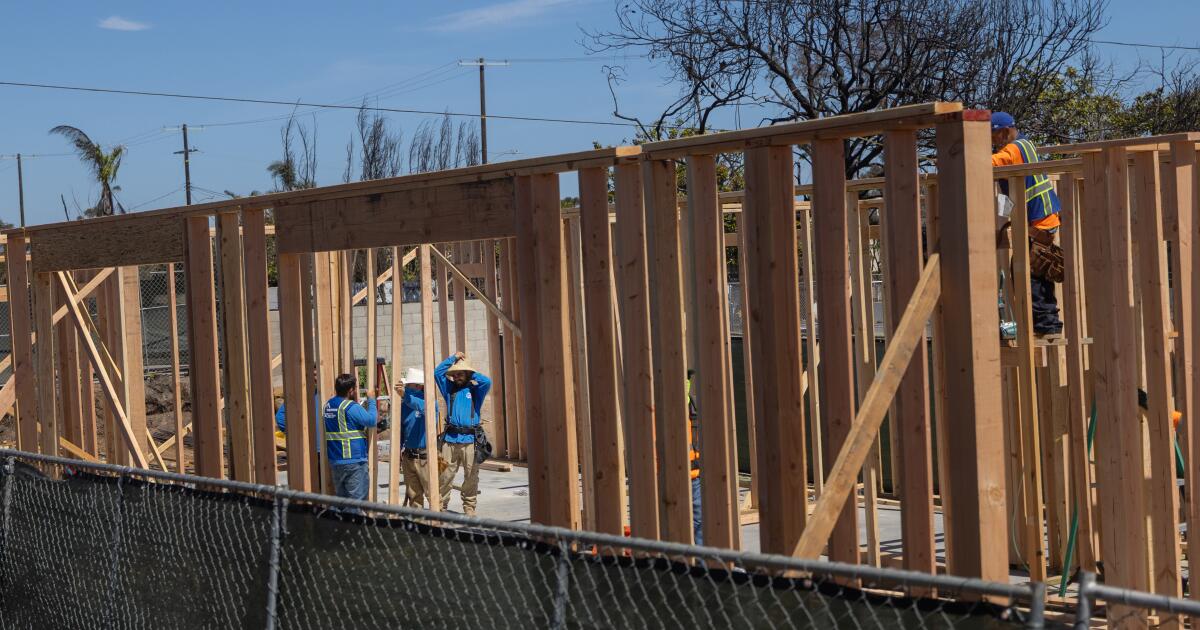U.S. attorney fired after telling Border Patrol to follow court order
The acting U.S. attorney in Sacramento has said she was fired after telling the Border Patrol chief in charge of immigration raids in California that his agents were not allowed to arrest people without probable cause in the Central Valley.
Michele Beckwith, a career prosecutor who was made the acting U.S. attorney in the Eastern District of California earlier this year, told the New York Times that she was let go after she warned Gregory Bovino, chief of the Border Patrol’s El Centro Sector, that a court injunction blocked him from carrying out indiscriminate immigration raids in Sacramento.
Beckwith did not respond to a request for comment from the L.A. Times, but told the New York Times that “we have to stand up and insist the laws be followed.”
The U.S. attorney’s office in Sacramento declined to comment. The Department of Homeland Security did not respond to a request for comment Friday evening.
Bovino presided over a series of raids in Los Angeles starting in June in which agents spent weeks pursuing Latino-looking workers outside of Home Depots, car washes, bus stops and other areas. The agents often wore masks and used unmarked vehicles.
But such indiscriminate tactics were not allowed in California’s Eastern District after the American Civil Liberties Union and United Farm Workers filed suit against the Border Patrol earlier in the year and won an injunction.
The suit followed a January operation in Kern County called “Operation Return to Sender,” in which agents swarmed a Home Depot and Latino market, among other areas frequented by laborers. In April, a federal district court judge ruled that the Border Patrol likely violated the Constitution’s protections against unreasonable search and seizure.
As Beckwith described it to New York Times reporters, she received a phone call from Bovino on July 14 in which he said he was bringing agents to Sacramento.
She said she told him that the injunction filed after the Kern County raid meant he could not stop people indiscriminately in the Eastern District. The next day, she wrote him an email in which, as quoted in the New York Times, she stressed the need for “compliance with court orders and the Constitution.”
Shortly thereafter her work cell phone and her work computer stopped working. A bit before 5 p.m. she received an email informing her that her employment was being terminated effective immediately.
It was the end of a 15-year career in in the Department of Justice in which she had served as the office’s Criminal Division Chief and First Assistant and prosecuted members of the Aryan Brotherhood, suspected terrorists, and fentanyl traffickers.
Two days later on July 17, Bovino and his agents moved into Sacramento, conducting a raid at a Home Depot south of downtown.
In an interview with Fox News that day, Bovino said the raids were targeted and based on intelligence. “Everything we do is targeted,” he said. “We did have prior intelligence that there were targets that we were interested in and around that Home Depot, as well as other targeted enforcement packages in and around the Sacramento area.”
He also said that his operations would not slow down. “There is no sanctuary anywhere,” he said. “We’re here to stay. We’re not going anywhere. We’re going to affect this mission and secure the homeland.”
Beckwith is one of a number of top prosecutors who have quit or been fired as the Trump administration pushes the Department of Justice to aggressively carry out his policies, including investigating people who have been the president’s political targets.
In March, a federal prosecutor in Los Angeles was fired after lawyers for a fast-food executive he was prosecuting pushed officials in Washington to drop all charges against him, according to multiple sources.
In July, Maurene Comey, a federal prosecutor in Manhattan and the daughter of former FBI director James Comey, was fired by the Trump administration, according to the New York Times.
And just last week, a U. S. attorney in Virginia was pushed out after he had determined there was insufficient evidence to prosecute James B. Comey. A new prosecutor this week won a grand jury indictment against Comey on one count of making a false statement and one count of obstruction of a congressional proceeding.

